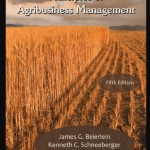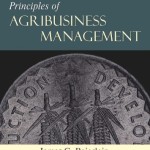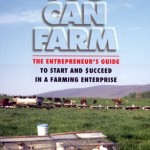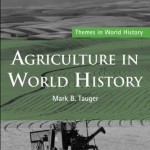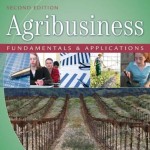
Agribusiness: Fundamentals and Applications, second edition, discusses the broad spectrum of the agribusiness world. Several chapters focus on the agricultural input sector, which are the supplies and services needed by ranchers, farmers, and or other production agriculturists. Some examples include the feed, seed, fertilizer, chemical, and farm machinery agribusinesses. Once basic production economics and farm management are discussed, several more chapters cover the agribusiness output sectors that include agribusinesses, which move food and fiber from the farms and ranches to the consumer. The fundamentals and applications of agribusiness are detailed showing how products go from their source to the consumer highlighting the many steps in this process. Basic principles of commodity marketing, international agriculture marketing and food and fiber processing channels are some of the topics explored in detail. Basic agricultural economic principles are discussed to assist the user to better manage an agribusiness. This book not only discusses employment opportunities, but also explains how to start-up, run and manage your own agribusiness.
Read More →